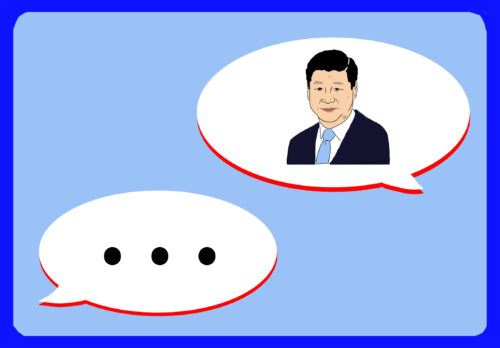Tech companies hit hard in this year’s 315 Gala
In this year’s consumer’s day name-and-shame gala, facial recognition startups and job-seeking sites are accused of data privacy breach, web browsers and phone cleanser apps alleged of fake advertising.

On March 15, World Consumer Rights Day, China’s state broadcaster held its annual TV show, the 3.15 Gala (3.15晚会), that names and shames companies that have violated consumers’ interests.
This year, technology companies are the main target, as China steps up scrutiny on tech firms large and small: The March 15 shame list included a range of sinners from mobile phone browsers and “phone cleanser” apps backed by tech giants like Alibaba and Tencent to specialized companies like facial recognition service providers
What is the 3.15 Gala?
The annual World Consumers Rights Day began in 1983, inspired by speech by U.S. President John F Kennedy’s Congress given on March 15, 1962. China began to observe the day in 1986, after the government established the China Consumers Association.
Every March 15, the China Central Television (CCTV) hosts a two-hour prime-time show that exposes issues from fake and defective products to scam phone calls and illegal collection of personal data. It’s what Bloomberg calls “government’s version of public-service journalism,” as CCTV reporters go undercover and use hidden cameras to report on companies’ unethical or illegal behaviors.
The reputation and share prices of companies, both multinational and domestic, that are targeted by the show often suffer immediate damage. The companies typically issue prompt responses on the day of or the day after the airing of the 3.15 Gala, and some follow up with further apologies to try to avoid further government scrutiny. In 2013, Apple’s Tim Cook apologized two weeks after the 3.15 Gala had criticized the company for offering a shorter warranty in China than in other countries. Ecommerce giant Alibaba pledged to work with the authorities to crack down on fake product review “farms” in 2016.
The 3.15 Gala traditionally focuses on food safety and healthcare issues, but technology companies have increasingly become a major target over the past decade. And in the past year, the Chinese government has begun to rein in the power of China’s big tech companies, especially Alibaba.
Stolen faces and resumes
The illegal collection of facial information by retail stores was the first issue exposed by yesterday’s 3.15 Gala. Stores of American bathroom product maker Kohler, automaker BMW, and Italian apparel company Max Mara were found to have installed surveillance cameras that collect visitors’ facial data without their consent, which is in violation of a regulation on personal data collection issued (in Chinese) by China’s market regulator last year.
The companies that made these surveillance cameras, including Ovopark, Ulucu, and Reconova Technologies, were also named. The cameras can collect every store customer’s facial information, identify their age and gender, and assign a number to each of them. The store’s employees can later add additional tags and comments manually.
There is some context to selection of this particular corporate sin: China may be one of the world’s most-surveillanced countries, but the authorities have stepped up efforts in cracking down on corporate data malpractice privacy breaches, and the country issued its first personal information protection law draft last October.
Linkedin-like job seeking platforms Zhaopin, Nasdaq-listed 51Job (JOBS), and Hong Kong-traded Tongdao Liepin (6100:HK) also came under fire as the 3.15 Gala reported that they shared job seekers’ resumes for profit but did not take necessary measures to avoid misuse of confidential information.
Zhaopin, which claims to have 180 million users, reportedly charged 40 to 100 yuan ($6-15) to send jobseeker resumes to recruiters, but CCTV says the resumes are typically leaked to the black market, resold multiple times, and some land in the hands of scammers.
Dodgy ads and data collection on mobile browsers and apps
The 3.15 Gala previously exposed (in Chinese) illegal or problematic internet advertisements from search giant Baidu, ByteDance’s wikipedia-like Hudong Baike, and Nasdaq-listed content aggregator Qutoutiao (QTT). This year, mobile browsers and phone cleanser apps were in the spotlight.
Web browsers Alibaba-backed UC and Shanghai-listed Qihoo 360 Technology are alleged to have displayed ads for dubious or unauthorized health care products and hospitals. Four “phone cleanser” apps –– Tencent’s Mobile Phone Manager Pro, Memory Optimization Master, APUS’s Superior Cleaning Master, and Smart Cleaner––also reportedly illegally collected user information, and pushed scam advertisements on elderly users.
The named companies, like those from previous years, issued prompt responses. China’s top tech industry regulator, the Ministry of Industry and Information Technology, also quickly confirmed (in Chinese) the allegations against the two web browsers and tasked local authorities to investigate.
The two named web browsers by UC and Qihoo 360 and three job seeking platforms — Zhaopin, 51Job, and Liepin — have been removed from all major Chinese Android app stores by phone makers including Huawei, Xiaomi, and Oppo as of Tuesday afternoon. They are still available on Apple’s iOS app store.






